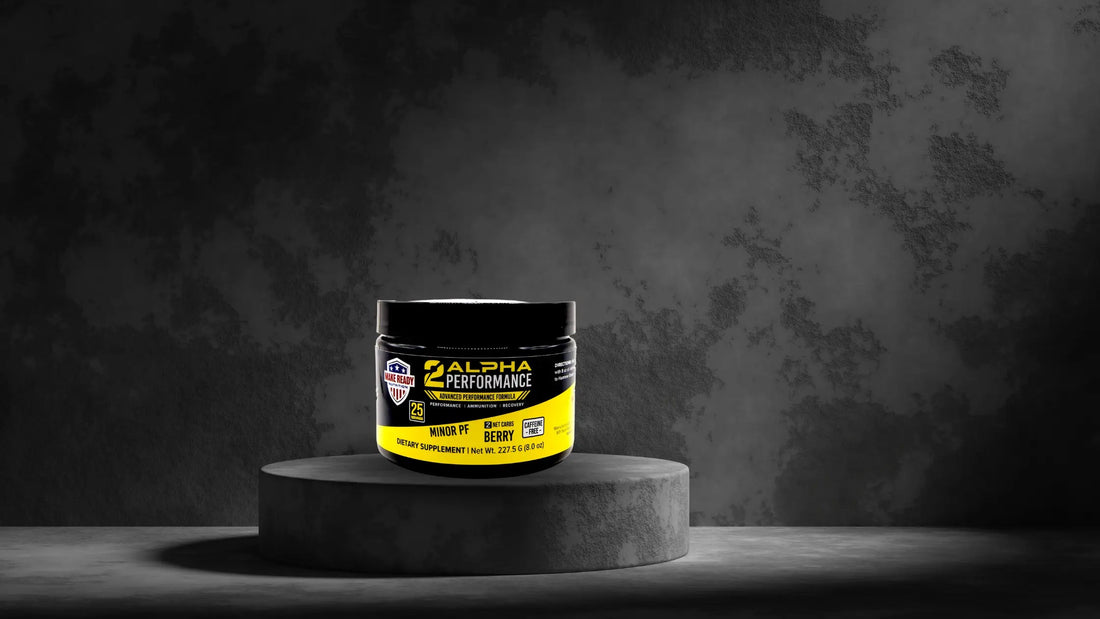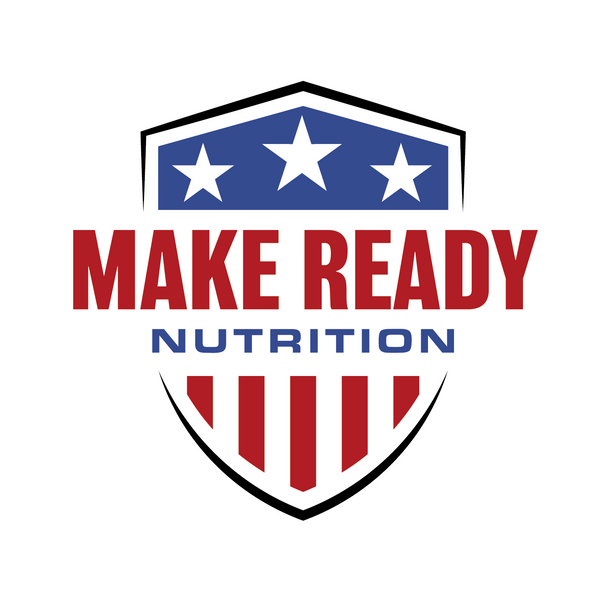
What is Minor PF?
Share
2Alpha Performance Minor Power Factor is all natural ingredients to make this caffeine free energy powder. Our products are sugar free and built for good health, energy, focus, and stamina without caffeine. The goal of this powder and all Make Ready Nutrition products are to drive performance and change body composition.
- Adenine (Ad uh neen) is a compound found in NAD+ and without going too far in the weeds on NAD+ (which is Energy from Adenosine Triphosphate or ATP), lets look at what adenine is used for in the body. As simple as possible, this is the energy, strength, and stamina. Food’s rich in adenine are whole grains, bee pollen, royal jelly, kelp, green leafy vegetables, honey, cayenne pepper, and berries.
- Niacin (THE B vitamin) In fact, every part of your body needs it to function properly. As a supplement, niacin may help lower cholesterol, ease arthritis, and boost brain function among other benefits. Food sources of Niacin, or B3 are Red meat, poultry, fish, brown rice, nuts, and bananas. Niacin helps to convert nutrients into energy, create cholesterol and fats, create, and repair DNA, and exert antioxidant effects.
- Vitamin B12 (methylcobalamin) (Brain and nerve supplement) Vitamin B12 is a nutrient that helps keep your body's blood and nerve cells healthy, and helps make DNA, the genetic material in all of your cells. Vitamin B12 also helps prevent megaloblastic anemia, a blood condition that makes people tired and weak.
- Betaine Anhydrous (Promote liver and athletic performance thru blood flow like beet powder) Betaine -- also called betaine anhydrous, or trimethyl glycine (TMG) -- is a substance that's made in the body. It's involved in liver function, cellular reproduction, and helping make carnitine. It also helps the body metabolize an amino acid called homocysteine.
- Citrulline Malate (Detox and vascular health to improve oxygen level) NO or nitric oxide. Beta-alanine is a naturally occurring amino acid that reduces exercise-induced fatigue, improves anaerobic exercise capacity, and can accelerate muscle growth, and blood flow. Citrulline is an amino acid that improves muscle endurance, relieves muscle soreness, and improves aerobic performance.
- L-Taurine(Clean stimulant less harsh than caffeine) helps with energy, brain, and nerve from blood flow. L-Taurine has important functions in the heart and brain. It helps support nerve growth. It might also benefit people with heart failure by lowering blood pressure and calming the nervous system. This might help prevent heart failure from becoming worse.
- D-Ribose (Helps recovery, cardio, muscle aches, and muscle function) Ribose is a simple sugar or carbohydrate snd then used to produce ATP. Overall, studies demonstrate the potential of D-ribose for improving heart metabolism and function in people with heart disease. Some evidence shows benefits of D-ribose supplements for those with low blood flow to the heart muscle, as seen in conditions like coronary issues. Foods rich in D-Ribose include beef, lamb, milk, salmon, yogurt and mushrooms.
- L-Arginine can relax blood vessels and lowers blood pressure. It might also be effective at, reducing the symptoms of angina, and treating erectile dysfunction due to a physical cause. L-Arginine plays an essential role in nitric oxide synthesis. It seems to increase exercise capacity by increasing the capacity of anaerobic and aerobic pathways. It can be made in a lab and used in supplements. People use L-arginine for chest pain and various blow flow issues.
- Beta Alanine (Decreases muscle fatigue) enhances performance by increasing exercise capacity and decreasing muscle fatigue. It also has antioxidant, immune-enhancing and anti-aging properties. You can get beta-alanine from foods that contain carnosine or through supplements.
- Calcium Your body needs calcium to build and maintain strong bones. Your heart, muscles and nerves also need calcium to function properly. Your body doesn't produce calcium, so you must get it through other sources. Calcium can be found in a variety of foods, including: Dairy products, such as cheese, milk and yogurt, Dark green leafy vegetables, such as broccoli and kale, Fish with edible soft bones, such as sardines and canned salmon, Calcium-fortified foods and beverages, such as soy products, cereal and fruit juices, and milk substitutes.
